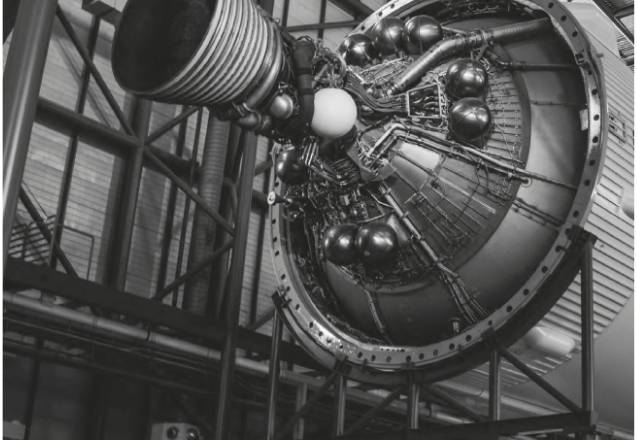The journey toward perfection in the aerospace industry is a relentless one, marked by a continuous quest for precision and reliability. At the core of this pursuit is the challenge of managing nonconformance in manufacturing processes, a task that is both intricate and critical, particularly in the realm of jet engine production. Unlike the automotive industry, where mass production and repetition are the norms, aerospace manufacturing, particularly in the realm of jet engines, is akin to the meticulous process of crafting a Swiss watch. The uniqueness of every part demands unparalleled precision and attention to detail compared to other manufacturing sectors.
For many years, the aerospace industry has been engaged in a complex battle with nonconformance — the deviation from predefined design standards and specifications. These deviations, seemingly minor on paper, could have implications for the structural integrity and performance of aerospace components. Nonconformance in the aerospace sector transcends technical boundaries. It is not just an engineering problem but a complex interplay of various disciplines including design, manufacturing, and quality assurance. Each aspect plays a crucial role in the life cycle of aerospace components, from conceptual design to After-Market.

The concept of zero defects in aerospace manufacturing represents an aspirational benchmark, a symbol of ultimate quality. This ideal, while recognized as the panacea remains a critical guiding star in the industry. Complete defect elimination takes tremendous effort, and the continuous pursuit of it drives significant improvements in product quality & manufacturing efficiency whilst ensuring no implications to safety.
In the high-pressure world of aerospace manufacturing, the margin for error is exceedingly small. The complexity and precision required in producing aerospace components, such as jet engines, mean that even the smallest defect could have far-reaching consequences. This reality sets the stage for the industry's persistent pursuit of perfection.
Setting the bar high with the goal of zero defects acts as a powerful motivator for continuous improvement. It encourages companies to innovate and refine their processes. This pursuit leads to significant strides in reducing nonconformance and enhancing the overall reliability and integrity of aerospace components. The journey towards zero defects, therefore, becomes a catalyst for advancement, driving the industry to constantly evolve and improve.
The COVID-19 pandemic has significantly altered the landscape of the aerospace industry, introducing a myriad of challenges and opportunities. The disruptions it caused in the supply chain—from production slowdowns and logistical hurdles to fluctuating demand—created a complex environment for manufacturers and suppliers. In this new reality, maintaining quality while adapting to the altered landscape is paramount.
The post-COVID era presents unique opportunities for the aerospace sector. It has opened the door for companies to re-evaluate and strengthen supply chain resilience and accelerate the digital transformation of manufacturing practices. This period of recovery and adaptation offers a crucial moment for reflection and reinvention. Companies that effectively navigate these challenges and manage nonconformance in this new landscape are poised not only for a swift recovery but also for emerging stronger, more agile, and more competitive than before.
The traditional approach in the aerospace sector has been to manage nonconformance — a method that, while effective to a degree, inherently accepts the presence of defects as an unavoidable aspect of manufacturing. At Quest Global, we challenge this notion, advocating for a strategy that doesn't just aim to manage or reduce nonconformance but seeks to eliminate it entirely. This perspective calls for a fundamental change in how quality is approached, moving from a reactive stance to a proactive one.
In the aerospace industry, the balance between safety and cost is both delicate and critical. At Quest Global we believe, along with the industry leaders, that safety must always come first. The correct process, underpinned by robust engineering knowledge and a focus on safety, is key to ensuring that nonconformance doesn’t become a compromise between safety and cost.
Addressing nonconformance isn't just a matter of technicalities; it's an emotionally charged issue, woven with potential integrity challenges, financial implications, and operating in a high-pressure environment. It's crucial to recognize and address these emotional aspects. Having a supportive team, a well-defined process, and adopting an unemotional, systematic approach are vital in transforming how we perceive and handle nonconformance.
As I look at the current landscape of aerospace manufacturing, I see a variety of approaches being adopted by different Original Equipment Manufacturers (OEMs) in handling non-conformance. Each OEM has its unique strategies and outcomes. This diversity leads me to a critical question: ‘Should our industry's goal be merely about managing and reducing non-conformance, or should we aim to make them obsolete?’ We, OEMs, suppliers, and engineering service providers, must elevate our vision beyond just managing nonconformance and strive towards completely eradicating it.
Our vision at Quest Global is to live the Zero-Defect philosophy in aerospace quality assurance, where the goal transcends managing nonconformance to eliminating it. This vision requires a concerted effort from the entire industry –. We, at Quest Global, have made considerable progress in this area, helping our clients drastically cut down the time required to address nonconformance issues from days to just minutes. This is more than just improving efficiency; it's about creating a pathway to the eventual elimination of nonconformance.
At Quest Global, we are working with leading aerospace manufacturers on standardization of nonconformance elimination strategies. Recognizing that most OEMs share significant portions of their supply chain, the true potential for achieving the zero-defect goal lies in harmonizing approaches across the value chain. This standardized approach, while widely acknowledged, has seen varied implementation across different regions. The key challenge and uncapped opportunities lie in demonstrating its efficacy and ensuring uniform adoption. It is in this context that Quest Global aims to catalyze a more efficient, cohesive, and successful transformation towards eliminating nonconformance.

Producibility & Flowline Consultant, Quest Global
It has come to our attention that scammers have tried to mislead people by fictitiously claiming to be employees of Quest Global or posing as authorized recruitment partners. These entities are misguiding job-seekers by promising well-placed roles with our company and asking candidates to pay for a certification course with a promise of reimbursement once they have joined. Kindly note, Quest Global conducts a formal interview process in our search for extraordinary people. We would NEVER ask candidates to pay for certifications at any stage of the recruitment process.
If you have questions or concerns, please email us at [email protected].